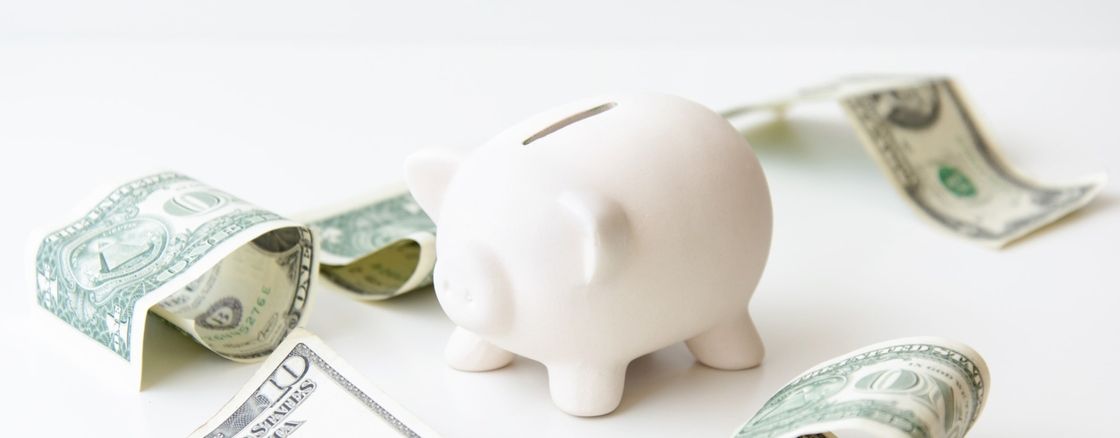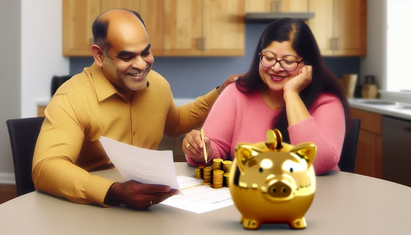Escrow Explained for First-Time Homebuyers
Written by:
Marianne Hayes
Marianne Hayes
Personal Finance Writer
Marianne Hayes is a contributing writer for Own Up. She has been covering personal finance and home ownership for over a decade.
See full bio
Fact Checked by:
Dan Silva
Dan is the Vice President of Marketplace Lending at Own Up. Throughout his career, he has held executive leadership positions in the mortgage and banking industry.
See full bio

Buying your first home is a big moment. After saving for your down payment and finding the right property, you’ll need to button up your mortgage loan and close on the sale. You’ll probably hear the term “in escrow” at some point, but you might not know exactly what that means. It’s one of many concepts first-time home buyers need to understand—and the good news is that it's pretty simple. Knowing the ins and outs can ensure a smooth real estate transaction.
What is Escrow?
Escrow is a service that helps protect both sides in a big transaction. A neutral and trusted third party (called an escrow agent) holds the money or property until each person involved has done what they promised. Once both sides meet the agreed upon conditions, the escrow agent releases the money or property to the correct party.
A lot of money moves around during a home purchase. As the buyer, you can expect to cover an earnest money deposit, down payment, closing costs, and prepaid charges. (We’ll unpack these shortly.) An escrow account serves as a safe and federally regulated holding place for some of these funds during the home-buying process. That can give the buyer a sense of security and peace of mind—especially when such large sums of cash are at stake.
It’s important to note that you might encounter two different types of escrow: The first type is purchase escrow, which holds funds related to the home-buying process, and the second type is mortgage escrow, which holds onto your monthly payments to cover certain housing expenses like property taxes and insurance after you close on the home.
What Does Being “in Escrow" Mean?
Sometimes you may hear the term “in escrow.” It’s often used to refer to real estate transactions, but it generally refers to having money or property that is being held by a trusted third party as part of a contract or agreement. If someone says they “are in escrow,” it most likely means they are under contract to buy or sell a property.
How Escrow Works in Home Buying
According to the National Association of Realtors®, escrow refers to a financial agreement where a neutral third party maintains control of funds transferred between the banks, homebuyer(s), and seller. Funds can be released when the terms of the contract have been fulfilled.
An escrow agent (sometimes called an escrow officer) is the person or entity that oversees the purchase escrow account. They’re an unbiased third party who honors both the buyer and seller during a real estate transaction.
Here’s a step-by-step guide of what you can expect during escrow:
1. Make an Earnest Deposit
Let’s say you see a home you’re excited about and decide to make an offer. Once your offer is accepted, you’ll likely provide an earnest money deposit, which will be held in a purchase escrow account while the contract is pending. (We’ll explain what this deposit is shortly.)
2. Go Through the Mortgage Application Process
When applying for a mortgage, the lender will:
- Check your credit score and debt
- Review your employment status
- Verify your income and assets
- Confirm the type of loan you’re seeking
A home inspection and home appraisal will be completed at some point. The latter reveals the home’s fair market value, which can affect how much a mortgage lender is willing to lend. Title services are also carried out during this time.
3. Close the Deal
If all goes well, the home purchase will go through without any major hiccups. You’ll need to come to the closing table ready to pay your down payment and closing costs, as well as a portion of your homeowners insurance premium and property taxes, which will be held in a different type of escrow account (mortgage escrow).
After the sale is finalized, you’ll likely prepay a portion of your home insurance premium, property taxes, and mortgage insurance (if applicable) as part of your monthly mortgage payment. These funds will sit in a mortgage escrow account, and the lender will use it to make tax payments and insurance payments on your behalf when those bills come due.
Your property tax bill and homeowners insurance payments could change over time. Your lender is required to complete an escrow analysis on an annual basis to ensure they have enough funds to cover these costs. They should notify you if there’s an escrow shortage or if they plan on increasing the escrow portion of your monthly mortgage payment.
Can Purchase Escrow Money Be Returned?
It depends. In order for this to happen, certain contingencies of the purchase agreement would likely have to fall through.
Contingencies are special conditions that allow homebuyers to walk away from a real estate transaction. These contractual clauses are designed to protect buyers. The following contingencies provide an out in certain situations:
- Inspection contingency: A home inspection does not meet the buyer’s standards.
- Financing contingency: The buyer is not approved for financing.
- Appraisal contingency: The home’s value comes back lower than the sale price.
- Buyer’s home sale contingency: The buyer is not able to sell their existing home.
Contingencies can give homebuyers peace of mind—if the property doesn’t meet certain expectations or financing falls through, they’re under no obligation to move forward with the sale. As long as certain conditions are met to support the cancellation of the contract, the buyer can get their earnest money deposit returned from escrow.
Escrow Fees and Closing Costs for First-Time Homebuyers
Here are several common expenses you may be responsible for paying during the home-buying process:
Earnest money deposits
This is a good faith deposit you make early in the home-buying process to show the seller you’re serious about the sale. This money is kept in an escrow account while your transaction is pending. When the sale is finalized, the earnest deposit will be put toward the down payment. These funds might be forfeited if you back out of the deal without an allowable excuse.
Sometimes a buyer will put down a second earnest deposit after certain contingencies from the contract are met. The amount may be a certain percentage of the purchase price. A second earnest deposit can help to strengthen an offer or help to break up the earnest money payments.
Down payment
This is the portion of the sale price that you pay upfront in a lump sum. The remaining balance is financed with a mortgage. Some home loans allow for down payments as low as 3%.
Closing costs
These costs are made up of fees owed to the mortgage lender and third-party service providers. That can include origination fees, mortgage insurance, home appraisal fees, title search services, and more. Closing costs typically add up to 2% to 5% of the purchase price.
Prepaid charges
You’ll likely need to prepay upcoming mortgage interest and a portion of your property taxes and homeowners insurance premiums at closing. These funds are kept in a mortgage escrow account.
Tips for First-Time Homebuyers Navigating Escrow
The escrow process can be overwhelming for first-time homebuyers, but knowledge is power. Here are a few simple tips for navigating it from start to finish:
- Stay informed: Ask questions and make sure you understand what’s happening every step of the way. There should be transparency from the escrow agent and mortgage lender regarding the funds you’ve contributed to the sale.
- Communicate with your team: That includes your real estate agent, lender, escrow company, and anyone else helping you with your home purchase.
- Be prepared: Gather the necessary documents and funds in a timely manner. This can prevent delays and help ensure a successful home sale.
The Bottom Line
The escrow process is important for borrowers to understand, especially if you’re a first-time homebuyer. Being up to speed on how it works can help you navigate things with confidence and ease.
Escrow services are also a continued part of homeownership. Even after the sale is finalized, you’ll likely continue to prepay your property taxes and home insurance through an escrow account. The same goes for private mortgage insurance if that applies.


